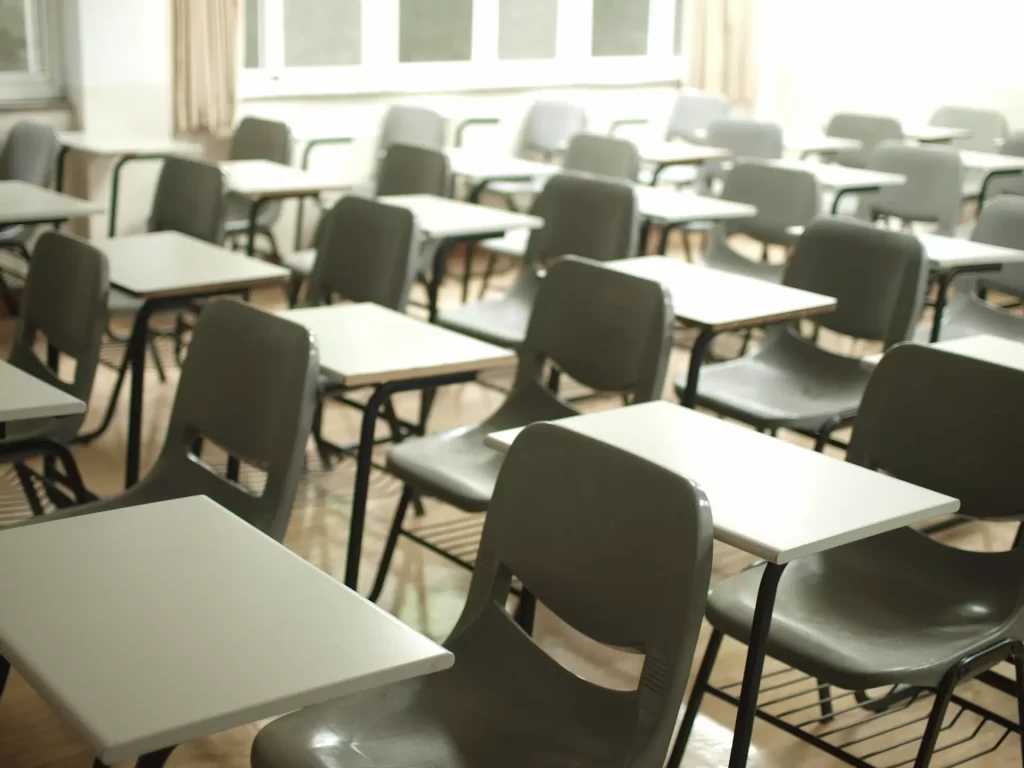DEPED | F2F CLASSES SUSPENDED NOW

Discover how DepEd is pioneering innovative curriculum reforms, enhancing learning environments, and empowering educators to shape the future of our nation’s youth.
Table of Contents
The Jist
DepEd (The Department of Education ), has decided to temporarily transition all public schools in the country to online learning mode. It was announced to start from April 29 to 30. This is all due to the extremely hot weather conditions and the upcoming transport strike.
This move by DepEd will ensure the safety and well-being of students and teachers during this period.
According to DepEd, all public school teachers and support staff are excused from going to the workplaces during the dates.
On the other hand, PAGASA’s latest weather forecast stated that over 30 areas would face extreme heat with heat indices ranging from 42 to 51°C on April 29.
The transport strike is set to run from April 29 to May 1 in response to the Public Utility Vehicle Modernization Program (PUVMP). This strike also contributed to the suspension face to face-to-face classes all in public schools.
The activities organized by regional and school division offices, such as Regional Athletic Association Meets and other division or school-level programs, may still be held on April 29-30, provided that DepEd enforce safety measures for all participants have been thoroughly evaluated and implemented.
Private schools, on the other hand, were not covered by the advisory.
Education 2024
Efforts are underway to address these challenges through curriculum reforms. The state of education in the Philippines needs to be improved as learning quality and accessibility often become an issue noticed by DepEd. However, these issues highlight the complexity and urgency of the education crisis, requiring sustained commitment and innovative solutions to ensure quality education for all Filipino learners.
Climate Change 2024
In 2024, climate change remains a critical global issue, marked by increasingly severe weather events and rising temperatures. The year began with record warmth globally, continuing a trend of eight consecutive months of record-high temperatures. This sustained warmth is accompanied by extreme weather phenomena such as intense storms, wildfires, and droughts, all of which are exacerbated by climate change.
Efforts to combat climate change involve significant international commitments, such as those made during COP28 in Dubai, where countries pledged to triple renewable energy capacity and make substantial reductions in greenhouse gas emissions. However, the urgency of the situation is underscored by the need for more immediate and substantial action to curb emissions and mitigate the effects of climate change on communities and ecosystems.
Heat Index
The heat index in the Philippines has reached exceptionally high levels in 2024, with some areas experiencing extremely dangerous conditions. According to reports from the Philippine Atmospheric Geophysical Astronomical Services Administration (PAGASA), several locations across the country have faced heat index readings exceeding 40°C and even reaching up to 47°C.
These conditions have prompted warnings due to the health risks associated with such intense heat, including heat exhaustion and heatstroke. It’s important for individuals to take precautions during these periods of extreme heat, such as staying hydrated, avoiding outdoor activities during peak hours, and seeking shade or air-conditioned spaces when possible.
PUVMP
The PUVMPM (Public Utility Vehicle Modernization Program) is a large-scale initiative by the Philippine government aimed at transforming the country’s public transportation system. Here’s a breakdown of the PUVMPM in the Philippines:
Goals:
Improve vehicle safety and quality
Enhance route network efficiency
Modernize the fleet with environment-friendly vehicles
Improve passenger experience with comfortable and accessible features
Key aspects:
Fleet modernization: Replacing old and dilapidated jeepneys with new vehicles that meet Euro 4 emission standards or cleaner. These new vehicles might be:
Modern jeepneys with improved features like comfortable seating, designated spaces for PWDs (Persons with Disabilities), and better ventilation.
Buses specifically designed for certain routes.
Route rationalization: Local government units (LGUs) will plan and manage routes to improve efficiency and reduce redundancy.
Improved regulations: The program aims to establish clearer guidelines for public transport operations, including franchising and fare structures.
Benefits (potential):
Safer and more comfortable rides for commuters
Cleaner air due to reduced emissions from modern vehicles
More efficient public transport system with shorter travel times
Improved livelihood opportunities for transport workers through skills training and livelihood programs
Challenges:
Cost: The program requires significant investment for acquiring new vehicles and infrastructure upgrades.
Livelihood impact: The transition might affect traditional jeepney drivers and operators who need to adapt or find alternative ways to earn a living.
Implementation: Effective implementation requires close collaboration between the government, transport operators, and the public.
Current Status (as of April 29, 2024):
The program has been ongoing since 2017.
The application period for jeepney operators to consolidate into cooperatives or corporations for easier franchise application ended on April 30, 2024.
There are ongoing debates and discussions about the program, with some concerned about its impact on jeepney drivers and the overall affordability of public transportation.
The Battle For Change
“The Quest for Transformation” embodies the relentless effort to enhance and revamp various facets of society, governance, and establishments. Whether in the Philippines or any other nation, this quest can materialize in various crucial domains.
The struggle for transformation is a versatile and intricate process that necessitates collective effort among various groups, the involvement of community organizations, and the dedication of government officials and leaders. It entails confronting established systems, promoting creative solutions, and striving towards a more environmentally friendly, fair, and equal future for all.
Fostering economic growth that benefits everyone and creating jobs is a key goal of reform advocates. They seek to achieve this by encouraging entrepreneurship, improving labor market policies, and attracting investments that have a positive impact on local communities. Additionally, they recognize the importance of preserving cultural heritage, traditions, and indigenous knowledge, which includes promoting cultural diversity, safeguarding heritage sites, and respecting the rights of indigenous communities.
Verdict
The Department of Education (DepEd) in the Philippines plays a crucial role in shaping the country’s educational landscape. Over the years, DepEd has implemented various reforms aimed at improving access to quality education, enhancing curriculum frameworks, and addressing challenges within the education system.
While DepEd’s efforts have led to positive changes such as increased enrollment and expanded access to educational resources, there are ongoing challenges to overcome. These include addressing infrastructure gaps, improving teacher training and support, and ensuring that educational reforms translate into tangible improvements in learning outcomes for students across the country.
DepEd’s commitment to continuous improvement and responsiveness to the evolving needs of learners and educators reflects its dedication to advancing the quality and relevance of education in the Philippines. The verdict on DepEd’s role is a call for sustained efforts and collaboration to achieve inclusive, equitable, and quality education for all Filipino learners.
The verdict on the extreme heat index in the Philippines in 2024 is clear: it represents a significant and potentially dangerous weather phenomenon. The recorded heat index exceeding 40°C and reaching up to 47°C in some areas poses serious health risks to individuals, including heat-related illnesses such as heat exhaustion and heatstroke. This extreme heat underscores the importance of taking preventive measures to stay safe during such conditions, such as staying hydrated, avoiding prolonged exposure to the sun, and seeking cool environments. Authorities and communities must remain vigilant and implement strategies to protect vulnerable populations from the adverse effects of extreme heat.
ADVERTISEMENT

Jom Bourie a professional poker player and an author of books about poker. Boasts an impressive 37-year tenure in the gambling industry, with a passion for gaming that has earned him a reputation as a trusted and knowledgeable figure. His dedication to precision, integrity, and transparency has enabled him to provide players with unparalleled insights and recommendations for exceptional online gaming experiences.
His videos have been viewed more than 22 million times on YouTube and his casino travel articles have appeared in magazines. He has also written numerous articles for gaming magazines circulation gaming magazines.